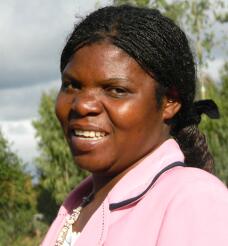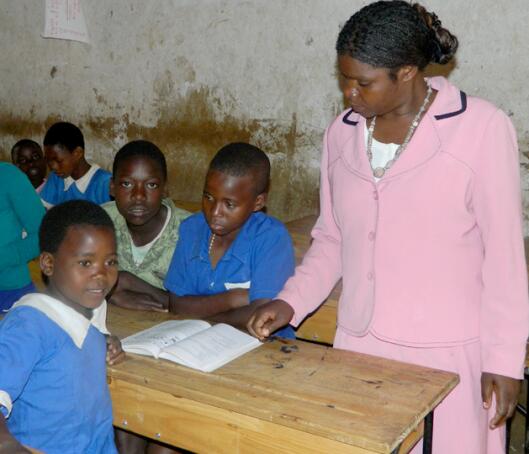A Passion for Teaching in Malawi
 As a young girl in 10th grade, Emily had wanted to become a nurse. Having visited a hospital to see a sick relative, she was impressed by the white uniforms and caps the nurses wore and the way they treated patients with care and kindness.
As a young girl in 10th grade, Emily had wanted to become a nurse. Having visited a hospital to see a sick relative, she was impressed by the white uniforms and caps the nurses wore and the way they treated patients with care and kindness.
However, at 16 Emily became pregnant and had to drop out of school. Her husband didn't want her to pursue further studies. But later, when she separated from her husband, she decided to complete her secondary education. She not only completed her classes but passed the Malawi School Certificate of Education Examination with flying colors.
The question then became: what to do next? She was still tempted by nursing school, but with four children to feed, she needed a means of support. She decided to attend the DAPP Amalika Teacher Training College and become a primary school teacher. She knew she could complete the program in 2.5 years.
Though she was focused on securing a career and income, Emily discovered a newfound passion for teaching and for making a difference in the communities in which she worked. As she became immersed in the training, she became increasingly dedicated, setting ambitious goals for herself and working hard to reach them. She was buoyed by the spirit of the place, and the camaraderie she felt with the other student teachers.
"Beyond the classroom walls, Emily has faced more difficult challenges: early and forced marriages remain a part of the local tradition."
Upon graduating, Emily began teaching at Nthulo Primary School in Nthulo Village. It was a typical rural primary school not unlike the one she attended as a girl in Engucwini. Everything seemed to be lacking, from texts and pens to desks and chairs. And if that wasn't enough of a challenge, the classes were very large. She taught two grades with 94 and 117 pupils in each (Standards 6a and 6b). Having learned never to give up, she fashioned teaching materials from whatever she could find; for example, using cardboard instead of a blackboard to lead the class.

Her teaching approach varied depending on need. She managed the large numbers of pupils by including group work, pair work and games. The games and songs she used, and continues to use today, enables pupils to learn and remember their lessons while having fun.
Beyond the classroom walls, Emily faced a more difficult challenge: early and forced marriages remained a part of the local tradition. Parents have threatened to disown their daughters if they ever returned to school, and they would say that they would blame Emily if they did. Emily has not been dismayed, and has continued to help coax girls who were married young and became pregnant to come back to school. She uses her own experience to inspire these young mothers, encouraging them to work hard and not succumb to the social pressures.
Donate today to support teachers like Emily.
Emily's dream is to continue her own studies at Mzuzu University. She sees it as a way to continue advancing and improving her teaching skills. She also intends to continue working in her school's community and contribute towards girls' academic advancement.
